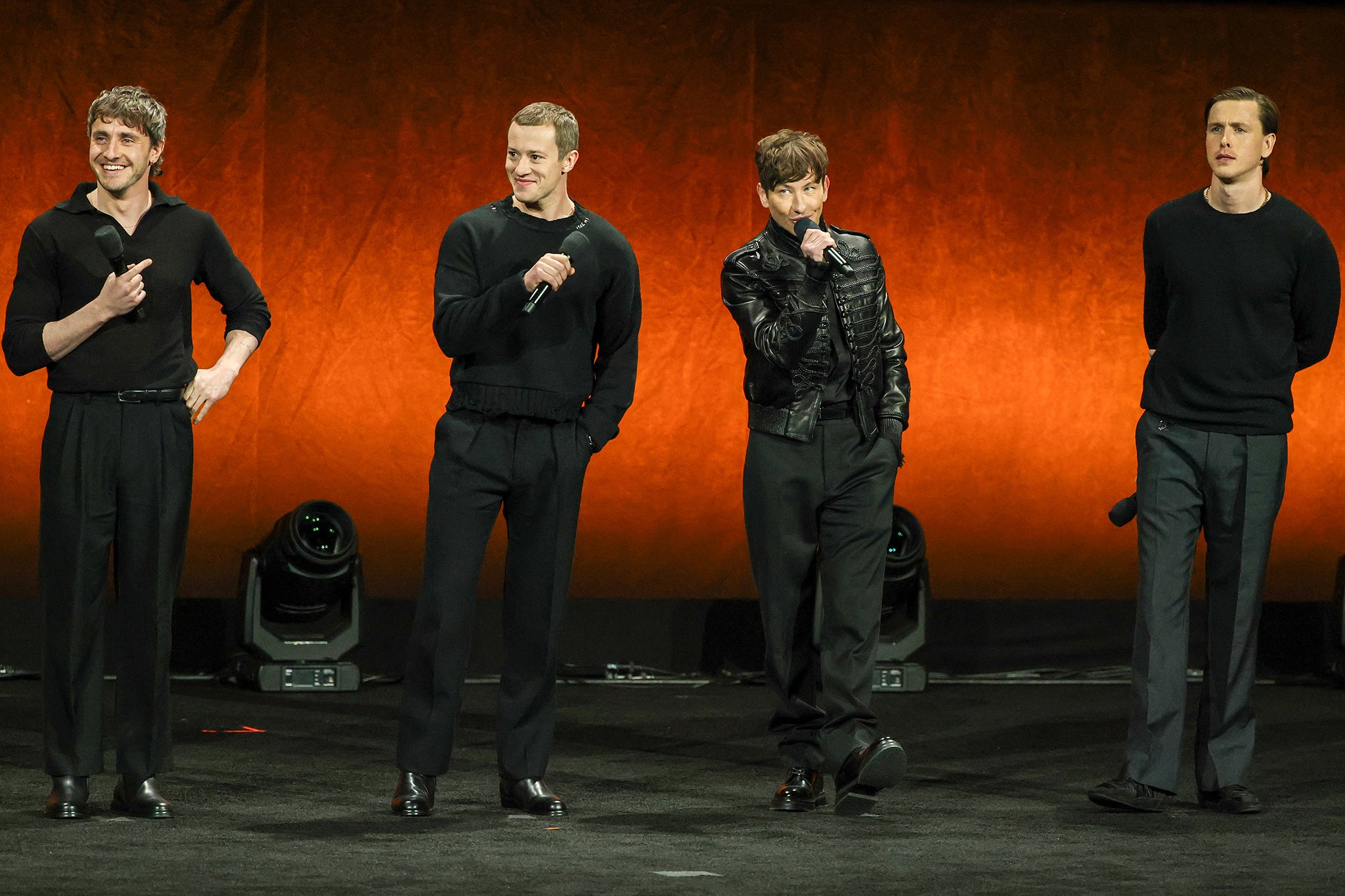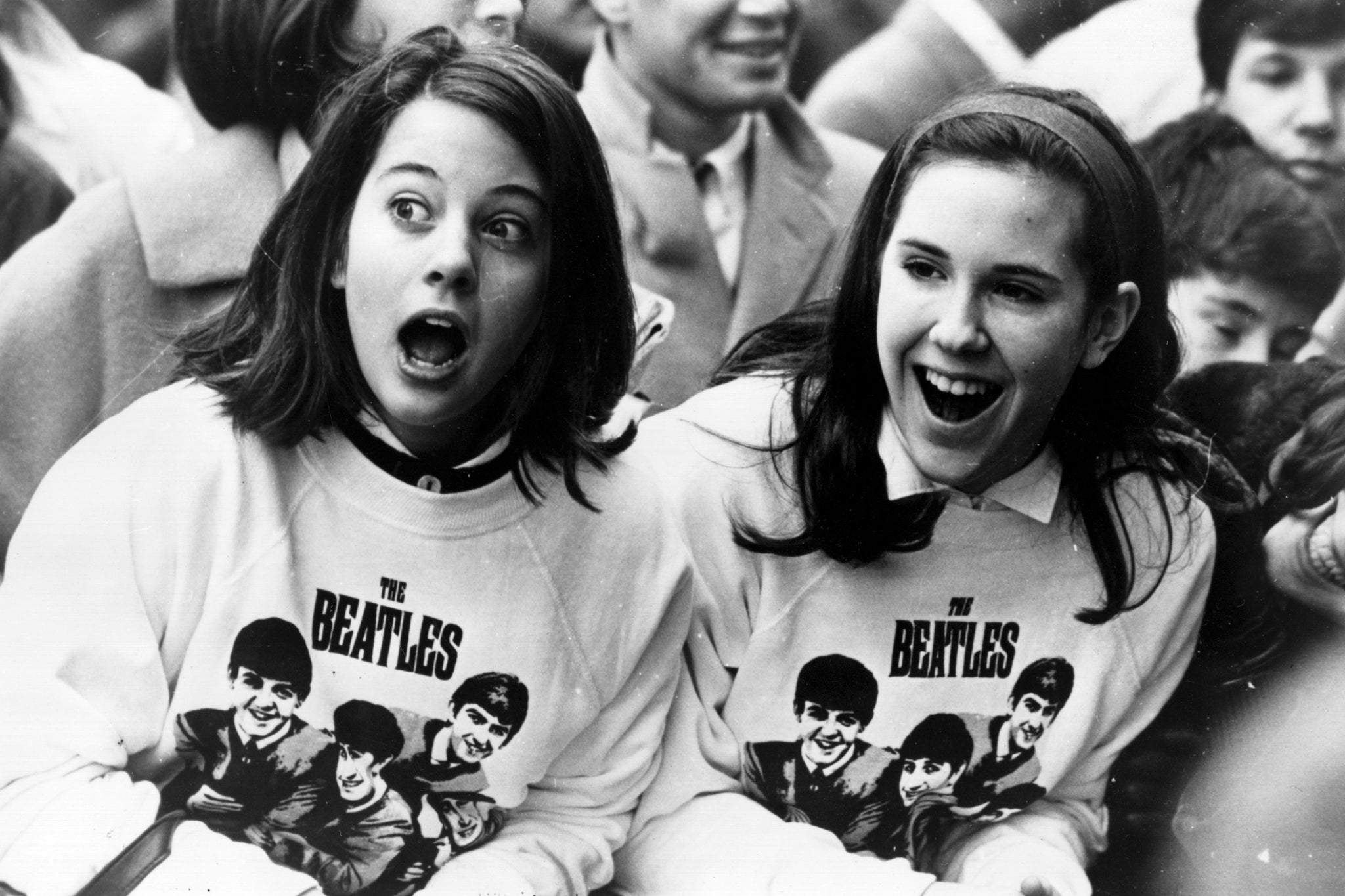ARTICLE AD BOX
I’m a little weary of white men telling us about the Beatles. I say this as a white woman who actively likes the Beatles. And occasionally tolerates men. Of course, it’s a criticism we could extend to many artists – whiteness and maleness are qualities often shared by the diligent students of Dylan, Springsteen, Cohen, to name but three. But in the case of the Beatles, a band whose early success was so propelled by female support, it feels particularly obnoxious.
News of a four-part biopic of the band, to be released one after another in cinemas in April 2028, broke in February. Its director Sam Mendes described it as an ambitious attempt to tell the story of the world’s most successful band from the individual perspective of each member. Not long afterwards came the announcement of its cast: Paul Mescal as Paul McCartney, Harris Dickinson as John Lennon, Joseph Quinn as George Harrison and Barry Keoghan as Ringo Starr. This week came details of its writers: Jack Thorne (Adolescence), Peter Straughan (Conclave) and Jez Butterworth (Jerusalem).
By any measure, it’s a grand collision of talent, for which Sony Pictures holds high hopes. The Beatle-owned Apple Corps has also, for the first time, granted full life story and music rights. While audiences must wait another three years for the films, the excitement around the project is already palpable. Much has already been said about the Beatles over the past 65 years, but Mendes is adamant his films will find fresh angles. “As a filmmaker, one is always looking to find new ways to look at the past,” he wrote in the Times, earlier this year. “To turn historical events so they catch the light in new and different ways.” A noble aim, of course, but the striking element about the Beatles project thus far, is that its perspective appears to be so familiar: conventionally white, predictably male.
There has never been a shortage of women who know about the Beatles. The popular depiction of Beatlemania draws on images from the 1960s: crowds of young women screaming and fainting and waving homemade banners. They’re there in the front rows of concerts, waiting at airports, and outside hotels: their understanding of the band deep, devoted, encyclopedic.
But at some point in the past six decades, this has shifted. A portrait of Beatlemania today might very well show a clutch of white middle-aged men pontificating about the White Album and prowling Discogs for rare Japanese pressings of Abbey Road. It’s not the love I question, but the presentation; as if this devotion is superior, more respectable, less hysterical, for being dressed in cultural theory.
Five years ago, Rolling Stone published a list of the 10 best Beatles books. None of them were written by women. In fact the only Beatles book written by a woman that I can readily call to mind is the academic Christine Feldman-Barrett’s A Women’s History of the Beatles – a fascinating look at how the work of the band has impacted the lives of women and girls, but one that presented the author as an authority on women-and-the-Beatles, rather than simply the Beatles.

Similarly, there are some very fine Beatles podcasts presented by women – Another Kind of Mind, BC the Beatles, to name but two. But the field is dominated by male-hosted series with a plethora of male guests (full disclosure: I, a woman, was once a guest on the Your Own Personal Beatles podcast and had a very nice time).
The music critic Jessica Hopper once asked what might happen if you replaced the word “fangirl” with “expert”. It’s a subject also brilliantly explored by The Independent’s Hannah Ewens in her book Fangirls, which documented the history of female superfans from Beatlemaniacs to Beliebers. Using “fandom” as a derogatory term is an example of how we make women smaller by diminishing the value of their knowledge, by questioning the nature of their passion, by suggesting their interest might be more sexual than critical.
I wonder what would happen if we reversed Hopper’s question. How we might regard the male Beatle connoisseurs if we focused not on their self-proclaimed expertise but on their slavish fandom. And I wonder, too: do people ask Mendes and his writers which one of the Beatles they are, in the same way that, for a time, all women were expected to align themselves with a particular Spice Girl?

At heart, I don’t think these male Beatles fans are so different from the young women beside themselves at Heathrow airport in 1964. Their love for this band and their music is fuelled by similar desires, pleasures, hormones; the music of the Beatles offers all of them a conduit for complex human emotions. And while their screams may be a little less high-pitched, what they lose in treble they certainly gain in monotony.
I don’t begrudge these men talking about the Beatles. The problem comes when we only get to see the Beatles through the white male gaze. When, to paraphrase John Berger, men look at the Beatles, and women are looked at as part of the Beatles phenomenon – as wives, mothers, girlfriends, maniacs. The Beatles film project is admirable, Thorne, Straughan, Butterworth are spectacular writers, but if Sam Mendes truly wants his subject to catch new light, he would do well to seek a different angle.



.jpg?trim=132,0,0,198&width=1200&height=800&crop=1200:800)





 English (US) ·
English (US) ·